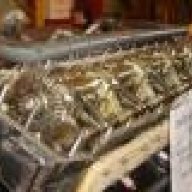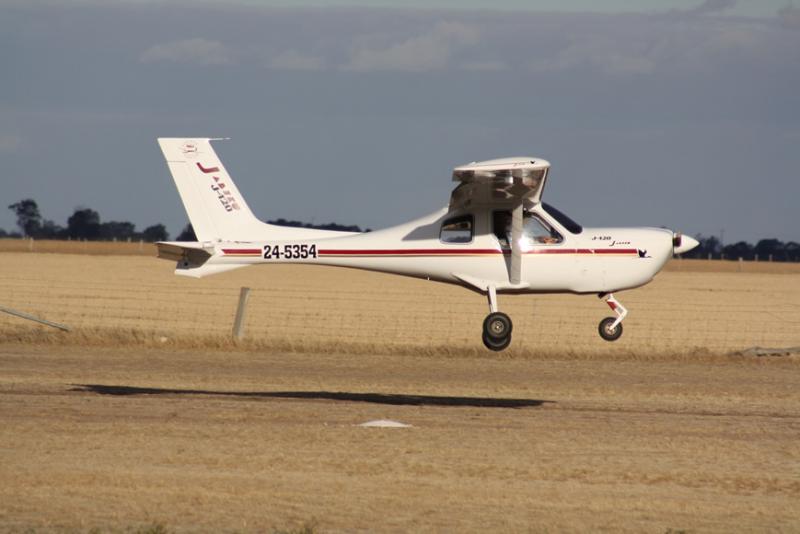-
Posts
201 -
Joined
-
Last visited
Content Type
Profiles
Forums
Gallery
Downloads
Blogs
Events
Store
Aircraft
Resources
Tutorials
Articles
Classifieds
Movies
Books
Community Map
Quizzes
Videos Directory
Posts posted by stanzahero
-
-
What tanks were these? What were the radials?Most tanks, even those used in the desert, had air cooled radials in them. Nev.
The British re-badged their Merlins as Meteors then used chassis cooling (chassis had water channels in them) to use in the tanks while I thought that the yanks had Ford and GM power plants (some were even petrol hence the nick names like Ronson and Zippo).
The Merlins that were built in America were modified and built as Allisons and (almost) powered the P51B & C's. It wasn't untill the Merlin went in that they (P51D) became useful as a fighter.
 Stanzahero
Stanzahero -
Hydrolic lock.I know of an accident that seriously injured a couple of guys when they lost power on take off due to the engine ingesting the coolant.Nasty because every thing stops dead, and usually they spit connecting rods out the side. Coolant is less "compressible" than air.
Although it would take a major catastrophe to cause that kind of coolant flow into the combustion chambers. Blown head gaskets and even cracked heads generally will not allow that kind of flow.
 Stanzahero.
Stanzahero. -
For a long time, aero engine technology out stripped any other engine techs. Going from two valve rotary to single valve rotary, then to radial with valves and without (sleeve valve engines and inline and the Vee engines.
In the early thirties, they had multi-valve, twin overhead bevel driven cam engines with alloy pistons (e.g. Kestral and Merlin V12s). It wasn't till jets became more common that piston engined aircraft started to slow in their advancement.
Cars (Ford as an example have only just introduced their first twin cam Falcon) were very slow to take in the new technology. Ford Introducing over head valve V8s in the 50's and 60's - old tech for Damlier, BMW, Rolls Royse, etc.
The reason that EFI systems were/are not popular with aero engines is because of the alititude changes. It is harder to measure air volume at higher altitudes and to get the perfect 14.7 to 1 ration for air to fuel weight - hense the mixture switches that allow for it. Even in South Africa (because of the ground altitude) you could still buy carburettored vehicles well into the '90s.
Regardless of the 120 year old design of the piston engine, anyone who could build one as a reliable, commercially viable product is a genius.
And I'd also be willing to bet that not all Lycoming and Continental models are perfect.
 Stanzahero.
Stanzahero. -
Tommo,
Hydrolic lifters are for cars...
Ever seen a truck or any other high load engine with them?
I believe that they also have the option for solid lifters..
Much better idea, me thinks.

Stanzahero.
-
My experience is in ground based vehicles.
Most car engines that are air cooled use ducting and baffles to direct the air flow over the major 'hot spots' in an engine (top of the cylinder and cylinder heads mainly exhaust side). They are still prone to overheating which is why they run clearance (piston to bore) of about .008" to .012" compare to about .0005" to .0015" for the water cooled variety.
Once over about 30 kph, water cooled cars usually do not need their radiator fans because air flow is good enough to keep the radiator supplied with fresh air.
Engines are designed to handle a broad variety of conditions and the only thing that I can see would be extreme cold (providing all things being equal).
I'd personally like air cooled because if a water/glycol cooled engine fails due to heat at 4000 ft "she no go Mr Faulty" and you need to fix the issue before it starts again. Whereas, if you're at 4000 ft with an air cooled engine and it stops because of the heat, you maybe able to restart it before your glide altitude reaches zero.
This, like I said is with cars, not planes but I'm thinking it would be similar in some cases.
Also the clearances for the non motor people are in thousands of an inch (.0005 is five ten thousands of one inch). It doesn't take too much heat expansion to become an issue.
Stanzahero
-
I was always fascinated by aircraft and as a kid, I tried to get to the airshows near Nagambie (Vic, AUS) at Easter time. Eventually at 19 I managed to make it.
I was amazed at the noise that the Merlins made, and by the 'sound of round'. I researched everything I could about engines (piston engines - I spent 18 years building them). It wasn't until my wife and I decided to do something together that we took up flying.
She is now a stones' throw away from her certificate, and I'm about a yard behind her.
Stanzahero.
-
Oil grades are defined for a reason in the same way that oils are designed for an application.
Using the wrong type of oil in an aero engine could amount to more than just rhetorical suicide...
-
Maybe the rain we have at the moment will wash the flu away....
All I need is soap...
-
Comparing them to Holdens and Fords is ironic...
Don't Jabs use Holden pistons?
I saw a 3300 apart at one stage (it had a tight piston to bore) and the piston looked very familiar...
Stanzahero.

-
-
Well done Tomo!!

-
I think (as the story goes) it was designed around the idea of shortening and overpowering the T-6 variant, the Wirraway.
By using the same base components they could modify an already good design, insert a R-1830 P&W (same already produced for the B25's) they had a 'stop-gap' fighter. They had most of the components available.
With only 13 weeks it was an amazingly successful machine, but it didn't have the development to out class its rivals in the air.
But it was interesting to note that Australia designed fighter planes before it designed and built motor cars for the public.
Stanzahero.
-
They're rebuilding a Mossie at Point Cook RAAF Base...
The Mosquito being a plywood fighter, they may be able to offer some assistance.
Stanzahero.
-
The 'Boomers were mainly used as ground attack because they were slow and could take punishment.
They also had a better scream than the Stuka in a dive made by the air rushing past the gun barrels.
*edit*
http://video.google.com.au/videosearch?q=boomerang+air+plane+WW2&hl=en&emb=0&aq=f#
I found this on Youtube
There are lots of stories of the AIF / AMF stinging messages between trees for the pilots to collect on their tail wheels to take home.
I like the kites!!
Stanzahero.
-
Hi Tomo... good to see the trades still rule.
For my apprenticeship, I mainly worked as a machinist reconditioning Bedfords, Izusus and Perkins diesels (13 liter 6 cylinder was the largest) for marine and transport applications. We then moved into light / medium 4wd engines such as Nissan and Toyota. Time was then spent doing standard car engines (boring). Then for the last 9 years I was a BMW, Mercedes and Audi specialist in Richmond, Vic.
The expensive jobs for me were the 5 valve Audis with broken camshaft belts.
100% garenteed valve loss. $110 per valve (five of) per cylinder (four, five or six of) plus VRS and Conversion Gasket sets without labour.
Hand back the head only and a $4000 bill to the mechanic (he needs to put his costs on as well) and the customer kinda freaks out...
I even took photos of the car engines as well.
But I'm retired from that now.
Stanzahero.
-
Hi Tomo,
Your very right.
For 18 years I rebuilt engine of all descriptions.
My favorites were the WW2 engines of Rolls Royce and Daimler Benz.
This was one I saw with the rocker cover off.

Ooooh... bevel drive twin over head cams... twelve multi-valve cylinders...
6.5 to one compression ratio....
I could go on but I'd over excite myself and bore the rest of you to tears. :)
Stanzahero.
-
I guess if BecM is in, I'd in as well...
Tho', that creates two problems:
1. We both need PAX and X-Country, and
2. We'd probably argue about who'd fly.
She's the 'senior' pilot, so I'd expect to lose...:black_eye:
Stanzahero.
-
Geeez, I hope you didn't see my first solo landing!

The only good thing about it was the recovery..
Most likely, I'll see ya round.
Stanzahero.
-
Greetings all,
I'm currently in the process of learning to fly RA-Aus.
I was introduced to the site by my better half (who is also in the process of learning to fly RA-Aus).
I am just passed 14 hrs into the experience with a J120, and am enjoying the challenge.
Stanzahero.




liquid cooled engines verses air cooled engines
in AUS/NZ General Discussion
Posted
Corrected.